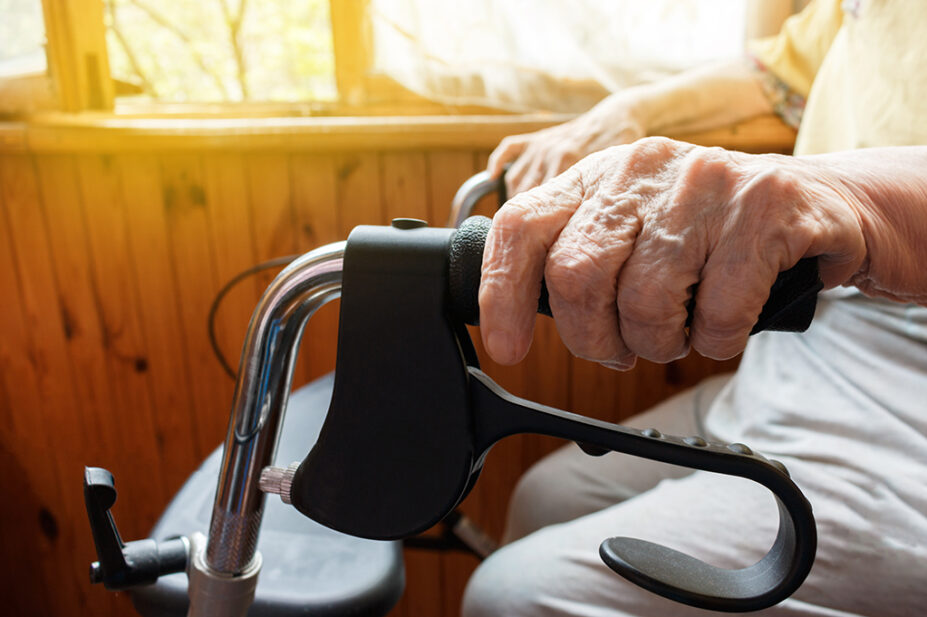
Shutterstock.com
The role of community falls pharmacist can increase prescribing appropriateness in an older population at risk of falls and is an effective and cost-efficient means of optimising medicines among this population, research suggests.
The research, published in BMC Geriatrics on 23 July 2024, assessed the impact of a community falls pharmacist within a hospital trust in Northern Ireland, who was working as part of a multiprofessional community falls prevention service to optimise medicines use in older people at risk of falls, by analysing data from before and after their fall.
Following pharmacist review, the results show an 8% mean reduction in the number of medicines prescribed per patient and anticholinergic burden (ACB) score per patient reduced by 33%.
Using data from 92 people aged 65 years or older, the medicines appropriateness index score also decreased by 56%, indicating improved appropriateness, and 101 ‘falls risk increasing drugs’ (FRIDs), as measured against a medication-related fall scoring tool, were deprescribed.
The study also identified positive environmental and cost impacts, including annual cost avoidance and drug cost savings of £40,689–£82,642, with an invest-to-saving return of £1.25–£2.54 for every £1 invested.
Reducing inappropriate prescribing amounted to an avoided 941kg of CO2 emissions per year.
Patients were referred to the community falls pharmacist by healthcare professionals including GPs and the Northern Ireland Ambulance Service. Patients presenting to a hospital emergency department with a fall, but not admitted to hospital, were also referred.
The pharmacist visited patients in their own homes to undertake a structured medication review in relation to FRIDs, as well as a bone health review.
According to the researchers, the results highlighted the advantage of such a role at the interface of primary and secondary care in enabling older people with mobility issues and lacking access to transport in receiving a medicines optimisation review in their own homes, potentially impacting health inequalities.
Between June 2022 and August 2023, the pharmacist made 317 clinical interventions, with an average of 3.4 interventions per patient. These included requests for GPs to reduce dosage or deprescribe medication and therapy recommendations to treat underlying conditions identified during the review, such as osteoporosis.
Authors said the study could potentially lead to “improvements in how management of medicines in older people following a fall is optimised” as well as informing “new pathways, policies and current practice” by providing “an insight into the role of a pharmacist where research is lacking”.
The paper added that the community falls pharmacist role offered “a potential solution to support medicines optimisation in this older population”.
The authors noted that the study was not designed as a randomised controlled trial as this was not possible owing to funding and time constraints; however, they said the study could provide “useful evidence” to inform further studies, including randomised controlled trials.
FRIDs, polypharmacy and ACB are known to increase the risk of falls in older people, as outlined in the National Institute for Health and Care Excellence (NICE) guidance on falls risk assessment and prevention, which includes medication review as part of its recommended multifactorial risk assessment.
Co-author of the study Paula Crawford, consultant pharmacist, older people services at Belfast Health and Social Care Trust, and PhD student at School of Pharmacy, Queen’s University Belfast, said: “Falls are the largest cause of emergency admissions to hospital for older people and can have a long lasting impact on quality of life. This study highlights the value of a pharmacist in optimising medicines in older people where inappropriate use of falls risk increasing drugs continues to impact adversely on older people.
“It’s important to continue to develop innovative roles and pathways for pharmacists which will improve patient care, working collaboratively with service leads and pursuing funding opportunities which will benefit both patient and the multidisciplinary team.”
Commenting on the study, Heather Smith, consultant pharmacist, older people at West Yorkshire Integrated Care Board’s Leeds office, said: “This is a welcome article clearly showing the benefits of adding pharmacist-delivered medicines optimisation to a multi-disciplinary community falls service.
“Pharmacists are highly valued by falls services for their expertise around medicines particularly medicines that contribute to falls and fractures but also for their positive impact on patient outcomes.
“I would encourage more pharmacy professionals to get involved in falls services for the benefit of this often-vulnerable group. It is hugely rewarding and important work.”
On 23 July 2024, the Royal Pharmaceutical Society (RPS) called for a greater focus on structured medication reviews (SMRs) in primary care in England, which have been offered to patients since October 2020, with priority given to people diagnosed with frailty or living in care homes and patients with complex polypharmacy (specifically taking ten or more medications) among other groups.


